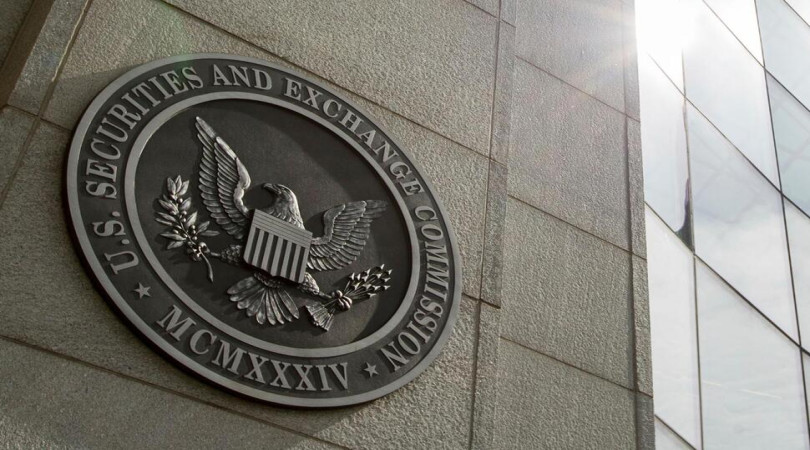At $9.4 trillion in assets under management, U.S. investment behemoth BlackRock Inc. (ticker: BLK) is the largest money manager in the world.
Just about all of that money percolates in traditional financial market channels, like stock, bonds, funds, currencies, derivatives, real estate and commodities. For years, nary a word was spoken (to the masses, at least) about BlackRock steering mountains of cash into cryptocurrencies.
But if you look closely, hints have been dropped about the investment firm's rising interest in crypto in the past few years.
A case in point: In November 2020, Rick Rieder, BlackRock's chief investment officer of global fixed income, said Bitcoin had the potential to "take the place of gold to a large extent." BlackRock CEO Larry Fink has also weighed in on crypto, noting that original crypto Bitcoin (BTC) was resonating with the public and may one day create its own global market. In December 2020, BlackRock left another crypto clue, advertising for a vice president of blockchain who would ostensibly drive "strategies designed to drive demand for the firm's offerings."
BlackRock's Bid for a Spot Ethereum ETF
BlackRock announced in November 2023 that it filed for a spot Ethereum (ETH) exchange-traded fund, and with that action the company's cryptocurrency vision has begun to crystalize. After all, it wouldn't roll out a new crypto ETF if it didn't believe in the market where it operates, would it?
BlackRock is not the only horse in the race for the first spot Ethereum ETF, however. Asset manager Grayscale Investments, which recently won a landmark legal victory against the U.S. Securities and Exchange Commission (SEC) in its bid to move a spot Bitcoin ETF into fruition, is also pursuing a spot Ethereum ETF. On Dec. 5, the SEC gave itself an extension to reach a decision or extend the deadline for the ETH ETF until January 2024.
BlackRock filed for its iShares Ethereum Trust to be listed on the Nasdaq and proposes to turn it into a spot ETF. Days later, Fidelity put in its own application for a spot Ethereum ETF, and at least five other top investment houses are now also in the running.
The SEC has yet to give the nod to either a spot Bitcoin or a spot Ethereum ETF, which would directly own Bitcoin and Ether rather than futures tied to the cryptos. There are several popular ETFs already in existence linked to cryptocurrency futures.
Spot Bitcoin ETF Appears Poised for Approval
BlackRock's spot Bitcoin ETF application is also in the works, as are talks between the SEC, Grayscale, Fidelity and others that have filed spot Bitcoin ETFs and progressed into a discussion of technical details, an indication that they may soon be approved, according to a Dec. 7 Reuters report.
What's not as clear is what these high-profile entries into the market mean for cryptocurrency investors, prices, and public policy risk and regulation oversight.
Industry investment experts say that it should mean a shot in the arm for crypto in the short term – and maybe a lot more.
"Companies like BlackRock recognize the potential for market growth and the opportunity to profit from it," says Adam Berker, senior legal counsel at global payments platform Mercuryo. "Consequently, they aim to be the first to penetrate the market and secure an advantage. Moreover, they already possess the necessary infrastructure, funds and investors to succeed and influence the further development of the crypto industry, given their heavy weight in the financial industry."
Even more significantly, BlackRock's Ethereum ETF move could be seen as a new phase in the crypto industry's evolution. "Large institutional investment funds are entering the market, prepared to invest their clients' money and influence the market's direction," Berker says.
"The foray of institutional giants like BlackRock into the crypto market signifies the mainstreaming of cryptocurrencies as an asset class," says Nic Puckrin, CEO and co-founder of Coin Bureau, a cryptocurrency education platform. "This strategic interest from large capital allocators signals a positive endorsement of the crypto industry, highlighting its growing acceptance and recognizing its potential for traditional hedge funds and investors."
How Would a Spot Ethereum ETF Impact Markets?
Who benefits the most and who absorbs the largest risk regarding BlackRock's proposal for a spot Ethereum ETF? While nothing is guaranteed in the often-volatile cryptocurrency market, here's an "impact" list:
Implications for the Cryptocurrency Market
Crypto industry experts say BlackRock's potential introduction of a spot Ethereum ETF should drive the market forward significantly. BlackRock and Fidelity applying for spot crypto ETFs, as opposed to crypto futures ETFs, sends a message to the financial world that cryptocurrencies as an investment vehicle have matured to the point that established institutions feel comfortable diving in.
If a BlackRock or Fidelity spot crypto ETF rolls out, the floodgates could open, allowing billions of dollars of new capital to have access to this uncorrelated asset class. So, in short, prices could go up.
Effect on Cryptocurrency Risk
While it's no secret that cryptocurrency is volatile, having the BlackRock brand and other big names in the crypto market should provide some price stability, experts say, as the relatively small pool of crypto owners expands to give access to more people.
In the case of a U.S. spot Bitcoin ETF, for example, Galaxy Research estimates that the addressable market size would be roughly $14 trillion in the first year after its launch, reaching $39 trillion by its third year. That's a lot more crypto investors having a much bigger hand in the direction of assets.
Impact on Cryptocurrency Prices
Crypto experts generally view the BlackRock ETF play as a positive one across the board, price-wise.
"We can expect major cryptocurrency prices to spike in the short term," says Habeeb Syed, an associate attorney at Sutter Law PC, which regularly services blockchain clients. "Medium to long term, expect sustained increases in BTC and ETH with the normal consequential rises in other crypto as the market sees an influx of value based on the two major cryptocurrencies."
That rise has already started, as Bitcoin's price popped above $44,000 late last week, and retreated just below $42,000 as of the morning of Dec. 11.
Other professional cryptocurrency trackers concur, noting the "trust" issue leans toward the market with a BlackRock presence.
"Although we don't like to speculate on price action, we do believe that the crypto ETFs will have a positive impact on the industry and market overall," says Nathan Leung, a crypto educator and lead content creator at Cryptonauts, a YouTube platform that covers blockchain and cryptocurrencies.
A stable level of trust from retail investors is extremely important because they are the key to mass adoption, Leung notes.
"Everyone has heard of crypto at this point, including your aunt and grandmother at family gatherings," he says. "But their perception of crypto varies, and the sentiment is mostly negative surrounding our industry. An ETF approval would boost the level of trust immensely, having a domino effect on the rest of the market."
What Risk Is BlackRock Taking With a Spot Ethereum ETF?
The biggest risk BlackRock faces is their ETF investors thinking they can stomach a 50% drawdown but then getting squeamish and pulling out at the bottom, causing negative sentiment toward BlackRock and the asset class as a whole, experts say.
However, BlackRock entering the fold may mark a level of maturity for the industry, limiting future drawdowns to normal percentages akin to real estate investment trusts and small-cap stocks.
What a Spot Ethereum ETF Means for the Second-Largest Crypto
Often languishing in the shadow of Bitcoin, Ethereum could find its time to shine, but there are caveats.
"Ethereum is just the next big thing after Bitcoin and one of the assets in the space least likely to be classified as a security given its decentralized nature and active and widespread use," Syed says. "If you're putting in the time and money to start an ETF, you don't want those efforts wiped out by a surprise SEC ruling."
Yet, with a green light from regulators, Ethereum could significantly benefit from its Fidelity or BlackRock ETF connection.
"Ethereum, the second-largest and most widely recognized cryptocurrency following Bitcoin, presents a valuable platform for BlackRock to enter this market," Berker says. "Beyond its recognition, Ethereum provides substantial liquidity."
That means investment funds can purchase Ether in advance to establish a liquid reserve. "When they decide to act, this reserve guarantees a robust market for transactions, offering an advantage over other altcoins," Berker notes.
Impact of Spot Crypto ETFs on Everyday Investors
Big moves from big investment firms have a ripple effect on Main Street investors, and BlackRock's new Ethereum ETF should be no different.
As with any investment, retail investors should keep a cool head if a spot Bitcoin or Ethereum ETF goes live. "While the news about ETF approval will positively affect the development of the crypto market, it is also vital to consider the progression and continuity of such news," Berker says.
Many investors will understandably assume that after a spot ETF has been approved, the price will be going up. But that's not necessarily the case.
"If there isn't any additional news to stimulate the market subsequently, there will be no reason for prices to continue increasing," Berker adds. "In general, market movement revolves around the noise generated by the news that every investor absorbs. Consequently, the market will need more such news in the future, to keep the price momentum going."






